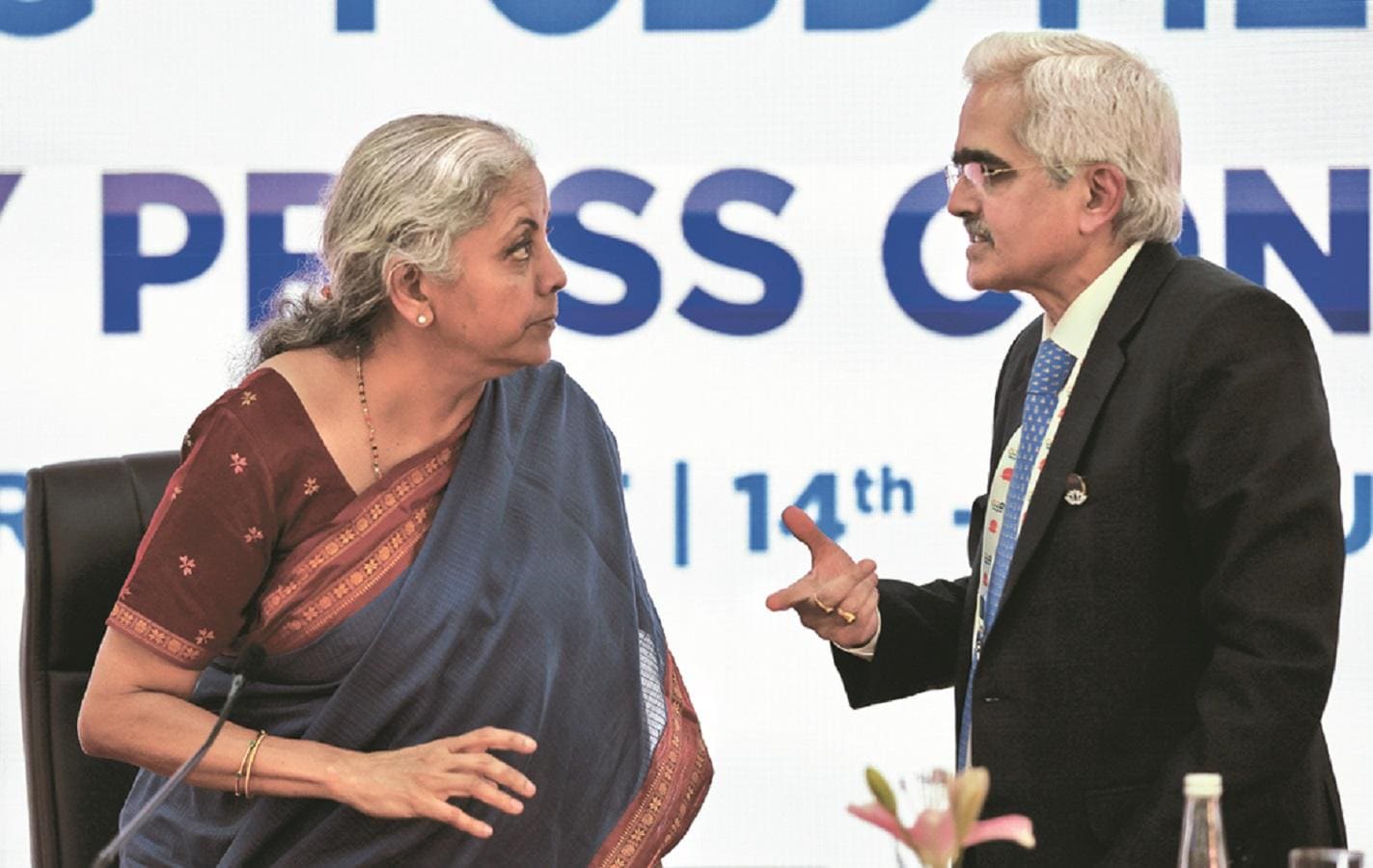The third meeting of the G20 Finance Ministers and Central Bank Governors (FMCBG) concluded on Tuesday, with an outcome document and chair summary that saw member-countries agreeing on almost all issues, ranging from a common framework for debt, strengthening multilateral development banks, and a swift implementation of the Crypto-Asset Reporting Framework.
On cryptocurrencies, while endorsing the reports by the Financial Stability Board and the Bank of International Settlements, the G20 members agreed they were closely monitoring the risks of the fast-paced developments in the crypto-asset ecosystem.
The two-day discussions of the finance ministers and central bank governors started at nine in the morning on Monday and continued till four in the evening the next day before the chair summary was finalised.
India has three main concerns on cryptocurrencies: The need to address macroeconomic and financial-stability risks, investor protection and education, and ensuring that nothing should be done to stop technological innovation, according to official sources.
The G20 has agreed on the potential of the central bank digital currency and its implications for cross-border payments as well as on the international monetary and financial system.
“It is a new currency and it will mean a fundamental change in the system of money across the world. It is something which is part of a process. These things take time,” Reserve Bank of India Governor Shaktikanta Das said, adding that more countries were examining it.
On the issue of global debt vulnerabilities, the chair summary said all member-countries stood by the commitments made in the Common Framework for Debt Treatments.
“China’s response to debt restructuring appeared encouraging,” Union Finance Minister Nirmala Sitharaman said.
The meeting invited views on the way forward in international taxation with regard to implementing measures to check tax evasion.
“Finance Ministers and Governors were also invited to discuss strategies for capacity building to support implementation of ‘Two Pillar Solution’ and enhancing global #taxtransparency under #G20India Presidency,” the finance ministry tweeted.
“The issue of cryptocurrency was also discussed to make a comprehensive, cohesive and coordinated global policy and regulatory framework for them,” Sitharaman told reporters after the conclusion of the two-day meeting.
Bone of contention
The 26-paragraph documents had agreement on all issues, except three paragraphs devoted to the war in Ukraine and the need to uphold international law, and the multilateral system that safeguards peace and stability.
While China stated the G20 FMCBG meeting was not the right forum to discuss geopolitical issues, Russia dissociated itself from the status of this document as a common outcome because of references to the war in Ukraine and the paragraph on the G20 Report on Macroeconomic Impacts of Food and Energy Insecurity and their Implications for the Global Economy.
On why there was no communique, which is considered a stronger statement of intent, Sitharaman said it was because there was a lack of common language on the Russia-Ukraine war. “Our position since February has been that we have derived the statement from Bali. We don’t have the mandate to change the language given in the Bali leaders’ summit. So it must be left to the leaders during the summit in September to take a call on that.”
Note:- (Not all news on the site expresses the point of view of the site, but we transmit this news automatically and translate it through programmatic technology on the site and not from a human editor. The content is auto-generated from a syndicated feed.))



